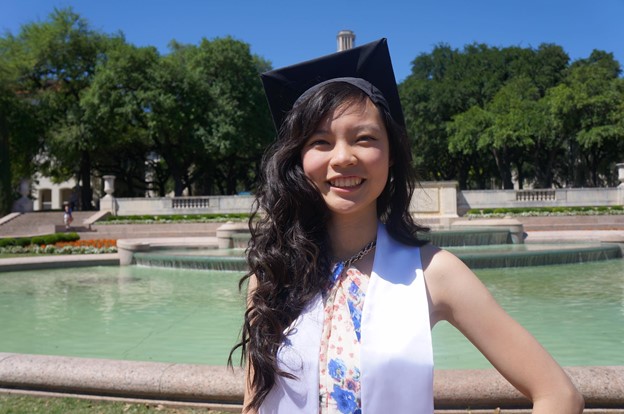Find a CBT Therapist
Search through our directory of local clinicians.
Quyen A. Do

Researcher Spotlight
Meet Quyen A. Do, M.Ed.
Quyen A. Do, M.Ed., is a doctoral student at the University of Texas at San Antonio and a member of Dr. Shelby Scott’s Promoting Resilience in DiversE (PRIDE) Family Studies Lab (https://www.pridefamilystudies.com). She was the 2021 Recipient of the ABCT Research Facilitation Committee’s Student Research Grant, which was awarded to support her dissertation project entitled: Intimate Partner Violence Among Sexual Minorities in Consensual Non-Monogamous Relationships, a dissertation project.
Tell us about the project the SRG is funding:
The project is a dissertation project investigating intimate partner violence (IPV) among sexual minority individuals in consensual non-monogamous relationships. IPV is a serious public health issue that is becoming increasingly prevalent due to the indirect effects of COVID-19. Research has established that IPV is a complex issue with negative effects on the health of individuals, families, and society. Unfortunately, IPV is often overlooked in marginalized populations, such as individuals who practice consensual non-monogamy (CNM), a practice in which all partners consent to having romantic and/or sexual relations with other people outside of their dyads. Despite the increasingly common practice of CNM among sexual minorities, there remains a dearth of research on the CNM population and how IPV manifests in these relationships. Thus, the current project seeks to investigate the manifestation of IPV among sexual minority individuals in CNM relationships. Study aims will focus on 1) understanding the prevalence and frequency of IPV among sexual minorities in CNM relationships, 2) examining anticipated risk factors, such as sexual minority stress and jealousy for IPV in said population, 3) examining the moderating effects of communication and social support on the relationships between proposed risk factors and IPV, and 4) evaluating mental health implications of IPV in CNM partners, including associations with depression, anxiety, and PTSD symptoms. Findings from the project will provide insight into the manifestation of IPV among sexual minority individuals in CNM relationships, which will in turn provide clinical guidelines for the development of effective IPV assessments and interventions for this underrepresented population.
How did you first become involved in research? What was this first research experience like?
My research journey began when I volunteered as an undergraduate research assistant in the Evolution, Variation, and Ontogeny of Learning Laboratory at the University of Texas at Austin, where I acquired fundamental skills from assisting with projects focused on children’s social learning. From these studies, I first learned the importance of cultural influences on the behaviors of children. This knowledge served as a foundation for my later interest in the role of cultural identities in individuals’ experiences with violence. Additionally, my responsibilities in the lab gave me first-hand experience navigating a research laboratory and provided me with the opportunity to learn from experts in the field.
What have you found most rewarding about your research?
My research interests are trauma and IPV in marginalized communities. Thus, my current projects involve human trafficking, IPV, Asian racial trauma during COVID, and discriminatory experiences of Asian women in healthcare. Despite the weight of such topics, my research work gives me insight into the tremendous strength and resilience of survivors. This motivates me to carry out my research work, which I sincerely hope will contribute to the knowledge and development of programs that can support survivors in their healing journey.
What does an average day or week look like for you?
My current typical week may be a bit atypical since I am working from home due to COVID. Generally, I have one or two meetings on Zoom per day with my faculty advisor, research teams, or undergraduate mentees. During the semesters, I would also attend classes via Zoom. Beside meetings and courses, I spend most of my time working on research tasks (e.g., writing manuscripts, recruiting participants, analyzing data). On the weekends, I would spend quality time with my puppy, cook, watch TV shows, listen to music, and sing karaoke. With things getting back to normal, I am excited that I will get to come back to campus and be with everyone in person again soon!
What is an example of a set-back you’ve experienced in your work, and how did you handle it?
Being a first-gen and an international student from Vietnam, the most salient setback for me is the lack of guidance in my academic journey. Moving to the U.S. by myself at the age of 15, I did not have any professional role model or any information about what it means to pursue a degree/career in Psychology. Thus, I have had to navigate the academic world on my own from a young age. However, my experiences taught me the true value of “stupid questions,” or questions we are sometimes afraid to ask in academic settings because we feel like we should somehow already know the answers to. I learned to ask such questions, no matter how embarrassed I might feel asking them. Fortunately, I have worked with faculty members who value my willingness to learn and provide a safe space for my questions. Turns out, being able to ask “stupid” questions really opens up the space for healthy vulnerability and professional growth. I’m grateful for my experiences.
My Account Info
Manage your Membership information, email preferences, and more.
Journals
Membership in ABCT grants you access to three journals.
Convention
We are now accepting Abstract submissions for Continuing Education Ticketed Sessions at the 2024 ABCT Convention in Philadelphia, PA.
My Account Info
Manage your Membership information, email preferences, and more.
Journals
Membership in ABCT grants you access to three journals.
Convention
We are now accepting Abstract submissions for Continuing Education Ticketed Sessions at the 2024 ABCT Convention in Philadelphia, PA.
